DIY Keyword Research
Learn How to Do Your Own Keyword Research
Are you a local business owner who has been wondering how to improve traffic to your website without breaking the bank? You know you need to get found online, but hiring someone to do your SEO might be out of budget. It can be confusing and daunting to even know where to start if you’re a solopreneur or have a small team.
Even though it can take years of work to become an expert at SEO, don’t let that discourage you - you don’t need to hire a consultant to start your own SEO strategy, either! Every business owner
can learn the basics and be empowered to do keyword research for their own business and industry.
We’ll walk you through the foundations of DIY Keyword research so you can feel confident doing this for your own business and start to see real results in your search engine rankings!
What is SEO and Keyword Research?
Search engine optimization or SEO is a set of practices designed to make sure your website appears in search engine results. influences its position in organic search results. Organic search results are unpaid links on search engine pages and every business should have an online marketing strategy that uses business or industry specific keywords
Keyword research is the most common way of finding the catchphrases your target market utilizes when doing any web search. When it comes to getting your business found online, this process is very significant as it is the initial phase in planning the search engine optimization that your website needs.
Why is Keyword Research Essential for all Business Owners?
In our modern world, most people regardless of age use Google to look for information about anything. That’s why as a business owner, improving your online presence is a very effective and compelling strategy to draw in more organic traffic to your website. Choosing the right audience to target and the way they use search terms is a must when it comes to SEO and it can be done through keyword research tools!
For beginners, keyword research means finding the right keywords to incorporate in strategic places throughout the website for your business. For example, you have a cake business. When people search for the term “cake”, there will be so many cake stores/ makers that will show up. If you haven’t added keywords to your website, yours might not be one of those names that will show on the first page.
But when you choose and use the right keyword for your business, it gives you a higher chance to be on the first page of search results. It is like using a specific phrase that describes your services or your products with the location your business caters to. “Pool maintenance gold coast” or “pool cleaning experts gold coast” – getting specific with your services and locations means fewer competitors, fewer results to show and a higher chance of getting visibility for your website.
As a vital part of good SEO, you should work to establish a solid keyword research plan and implement the keyword ideas you discover. If you don’t know where to start, start here: make a list of important, relevant topics based on the services offered by your business.
If you’ve never developed a keyword research strategy before - that’s okay! It’s not as scary as it sounds. We’ll walk you through the three primary aspects of keyword research below.
Things to Pay Attention to When Doing Keyword Research
There are three important terms you’ll need to know when doing keyword research for your business: Volume, Relevance and Authority.
Volume
A large search quantity reveals numerous people are searching with this particular search query. You may rise to the top spot on the primary page for a special keyword, but if no one ever looks for it, it will not create visits to your site. MSV (monthly search volume), which measures how frequently a term is looked at monthly across all audiences, is used to compute quantity.
A fundamental rule of thumb when selecting keywords is that searches over 20 times per month should be taken into account for SEO.
Relevance
Google evaluates content for importance. This is when the concept of search purpose emerges. Your content will only be indexed for a keyword if it meets the searchers' expectations and is the best available resource for the query. Google is not going to prioritize your content over your competitors if it has lower value and less information.
Authority
Websites that Google recognizes as trustworthy are given more importance. This means that you must use every effort to establish yourself as an authoritative source by enhancing your website with educational, helpful material and advertising it to get social signals and backlinks. If you do not have the distinction of being seen as an influence in the subject or if the search engine results pages for a keyword have numerous authoritative sites that you cannot contend with, then it is unlikely that your content will make it to a high-ranking position.
Keywords vs. Topics
What is the difference between keywords and topics? Aren't they the same? There’s a slight, yet important difference.
Topics consist of related and highly relevant keywords. For example, a topic could be on medical devices or recipes. While keywords are words or keyword phrases that web searchers or potential customers are using to get to your website. It is sometimes composed of 2-3 seed keywords, which are then called long-tail keywords.
Long-Tail Keywords or Keyword Phrases
The majority of terms which bring you website traffic and transactions will often be particular or long-tail keywords. The head (standard) phrases usually are brief, most of the time from 0 to 26 characters. These long-tail keywords consist of two, three or more words. For instance, "paint party" could be a head term. Those searches often acquire a great deal of organic traffic, but not necessarily traffic that will convert into actual website clicks as they are particularly competitive keywords and cover very broad topics. Long-tail keywords are lengthier and are a more explicit variation of the primary terminology with a stronger financial plan. For example, "online corporate painting party". You are more likely to bring in people to your website with these types of keywords and therefore are the terms we like to use most.
To find long-tail keywords, go through each keyword and discover beneficial keyword phrases that will be effortless to rank for, will produce direct traffic and aid us in increasing our main keyword through the ranks, and provide general authority and applicability to our website.
How are Keywords and Keyword Phrases Used
Once you have a group of keywords that'll aid you to concentrate on the right subjects for your company and secure your gains in both the short term and long term. Now it's time to build your content concepts and craft your website pages around those keywords. Incorporate them into different areas of your website such as:
Page url
URL stands for Uniform Resource Locator. URL is simply the address of an individual resource over the internet.
Page headings
A heading is a headline or title that breaks up the content on a page and categorizes the material into smaller parts so that it is simple both for visitors and search engines to explore and comprehend.
SEO title tag
A title tag is an element for a website that indicates the name of a web page. They are the clickable links from Google's search results that direct to your web page.
SEO description tag
Description tags are unseen tags that supply info about your page to search engines and website guests. They render it simpler for search engines to recognize what your content is related to, and thus are critical for SEO.
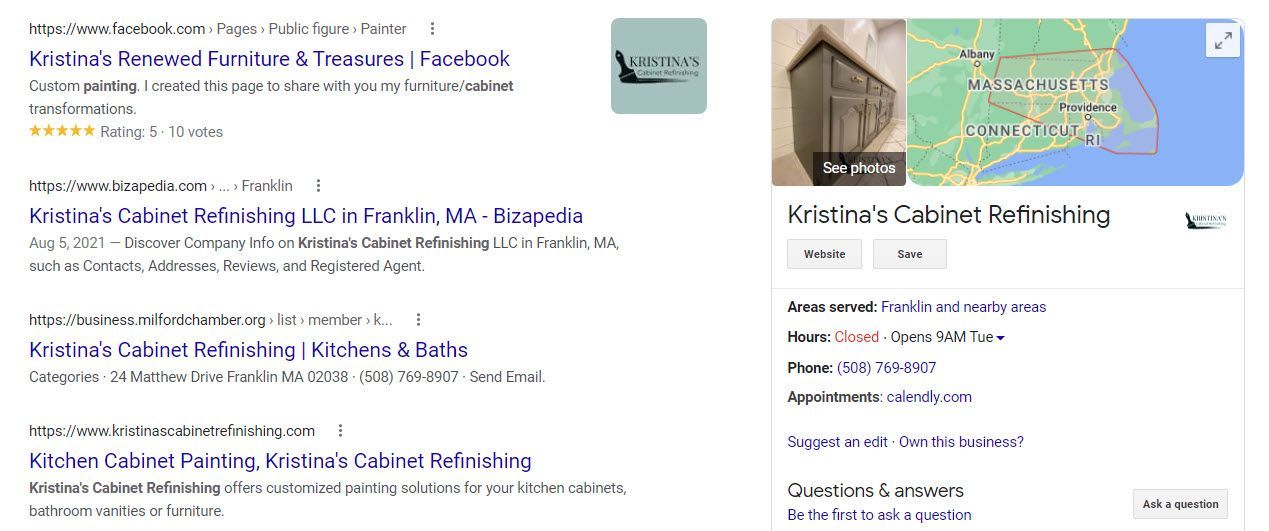
Content through the page/article, especially the first 200 words
Placing keywords throughout the content of your page, article, or blog post is very important for your SEO. By optimizing the words on your website, you can ensure that search engines like Google will include your website in their search results.
Focus especially on the first 200 words of your page as Google looks more heavily on the beginning content.
Image alt tags
Alt text is the written content that substitutes an image on a webpage if it fails to display on a user's monitor. This content helps screen-reading software pinpoint pictures for visually impaired readers and allows search engines to investigate and rank your website.
Anchor links text
Internal links help search engines understand the structure of your website. Search engines can better understand your (internal) links thanks to the link's content, which provides them with additional context. Google reads the link text when you connect to other material to determine the topic of the linked page.
As well as providing context, the anchor text explains the purpose of a link and directs users to where it leads.
FAQs
A website's FAQ (commonly asked questions) page is a location where you can answer your most frequently asked questions about your business.
How to Do Keyword Research Using Free Tools
There are many generators and research tools that are free and can help you level up your keyword research process! Below we've listed some of the best free keyword research tools:
Manual Search
The first free tool you can use to find keywords for your business is actually just yourself and Google!
Create a keyword list!
- Ask your clients about how they found you, and what did they search for? Take those words and phrases and copy them to your list.
- In the Google search box, start typing and Goog le will suggest keywords to you.
- If you are a local business, copy the Google Business Profile category. See
Painting Studio
category below.
- Plug these keywords and others you can think of into Google.
Copy all the keywords from the title and description of the first page from the top search results. See Zoom Virtual Paint Parties, Online Paint Party, Paint Kits below.
- Also copy the keywords from the "Related Searches" section.
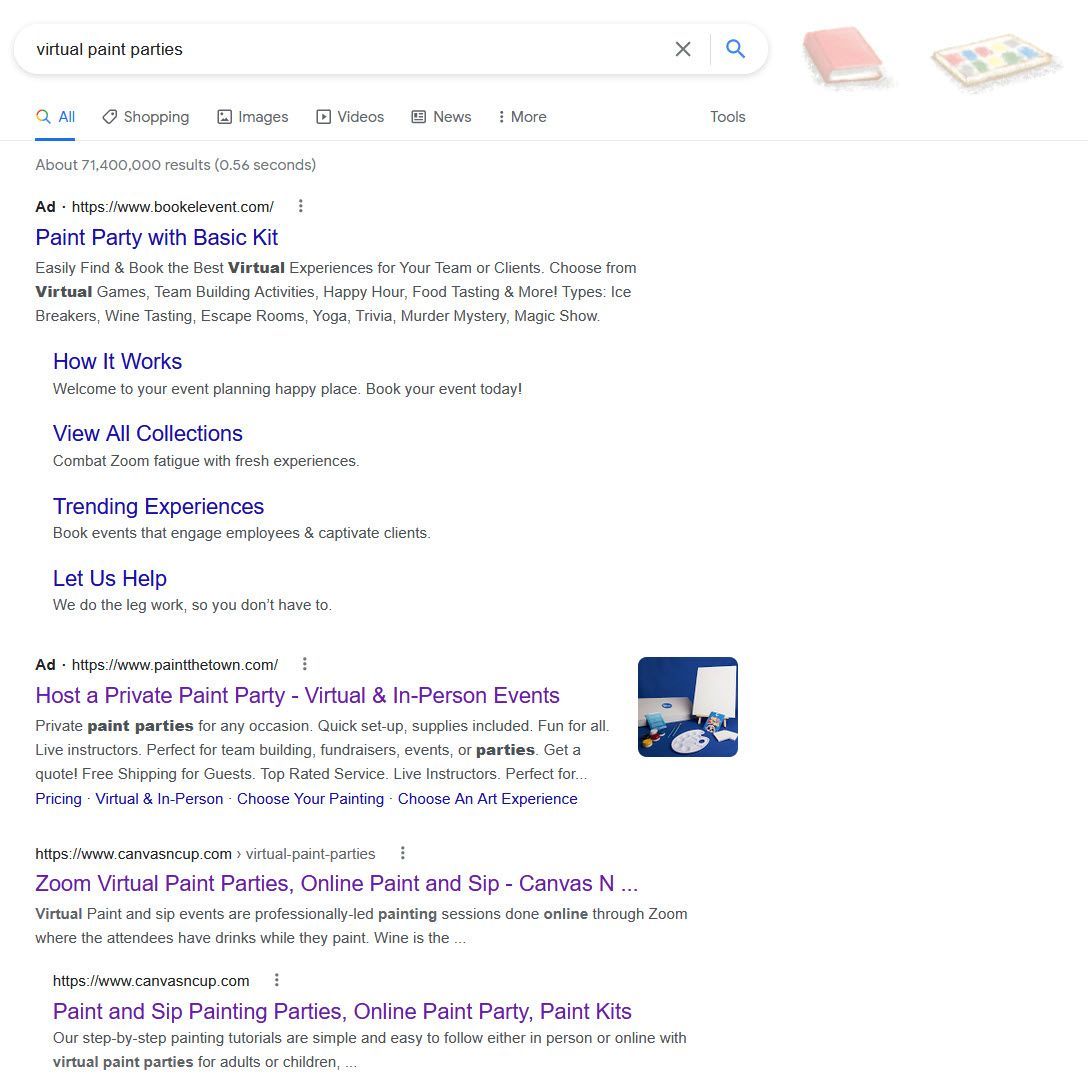
Google Search Console
The Google Search Console platform is easy to set up, so getting started is very simple if you are new to website tracking. It is a really effective tool and it is a must-have for every website owner. It provides the list of keywords that are most relevant to your industry and to your location and lets you see the competition level for each search term. It also included the latest Google Trends.
The first step is to create an account on GSC and add your website to it.
You will be given a code to verify your ownership. This code needs to be added to your site html. Once done, you should be able to monitor your website traffic for a certain amount of time.
Let’s now skip to the good part.. There will be an option for you to see the keywords your page currently ranks for. By default, Search Console will show phrases that have received the most audience or clicks. Hence, your list of keywords should circle around the words that you will see on your Search Console.
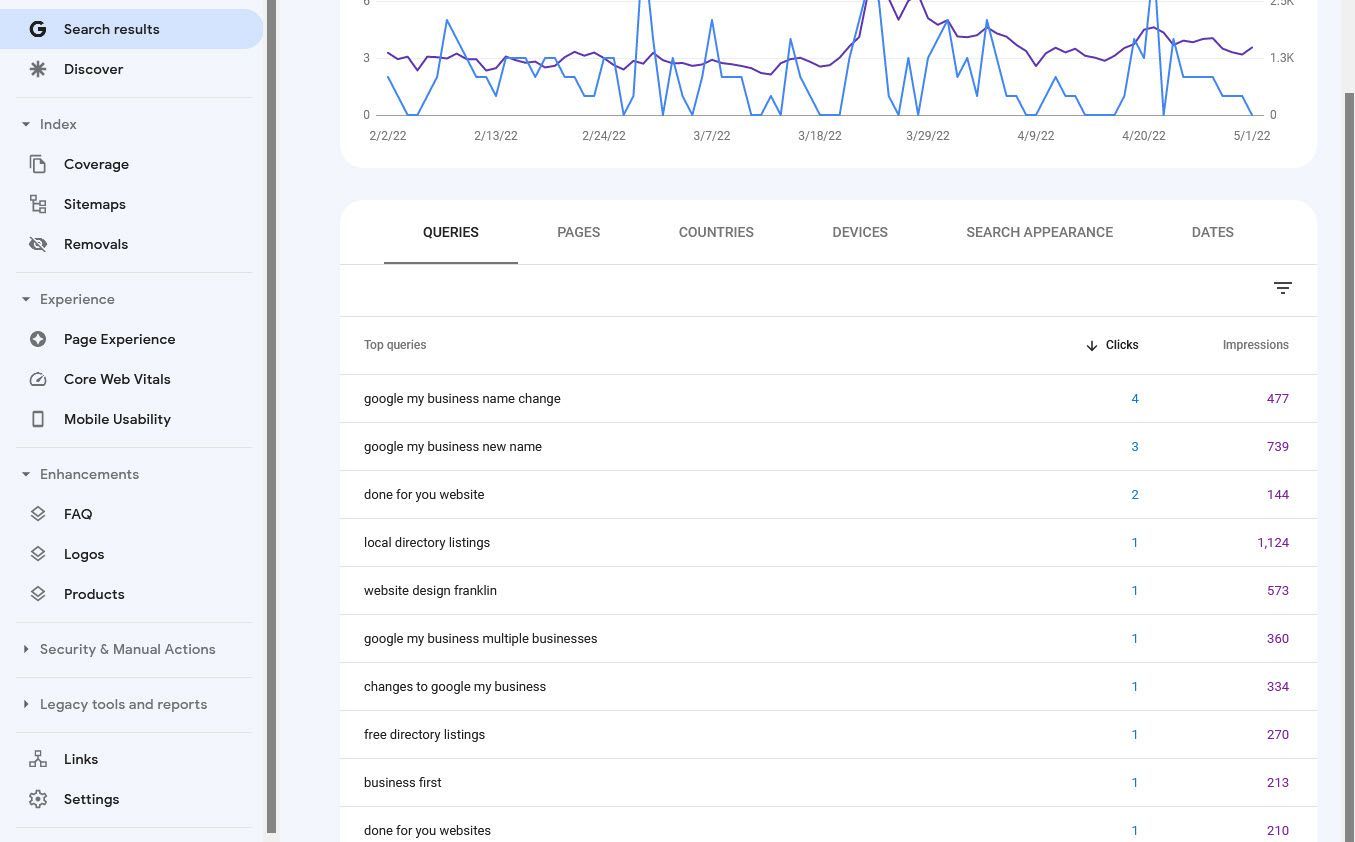
IMforSMB Bulk Keyword Generator (Trades Only)
This is a local SEO keyword tool that automatically generates local keyword lists by industry and lists the most popular keywords for your business. You will only need to select a business type and city, and the tool will automatically generate all local keywords for your business type, based on your input, that potential customers might use to search and find you.
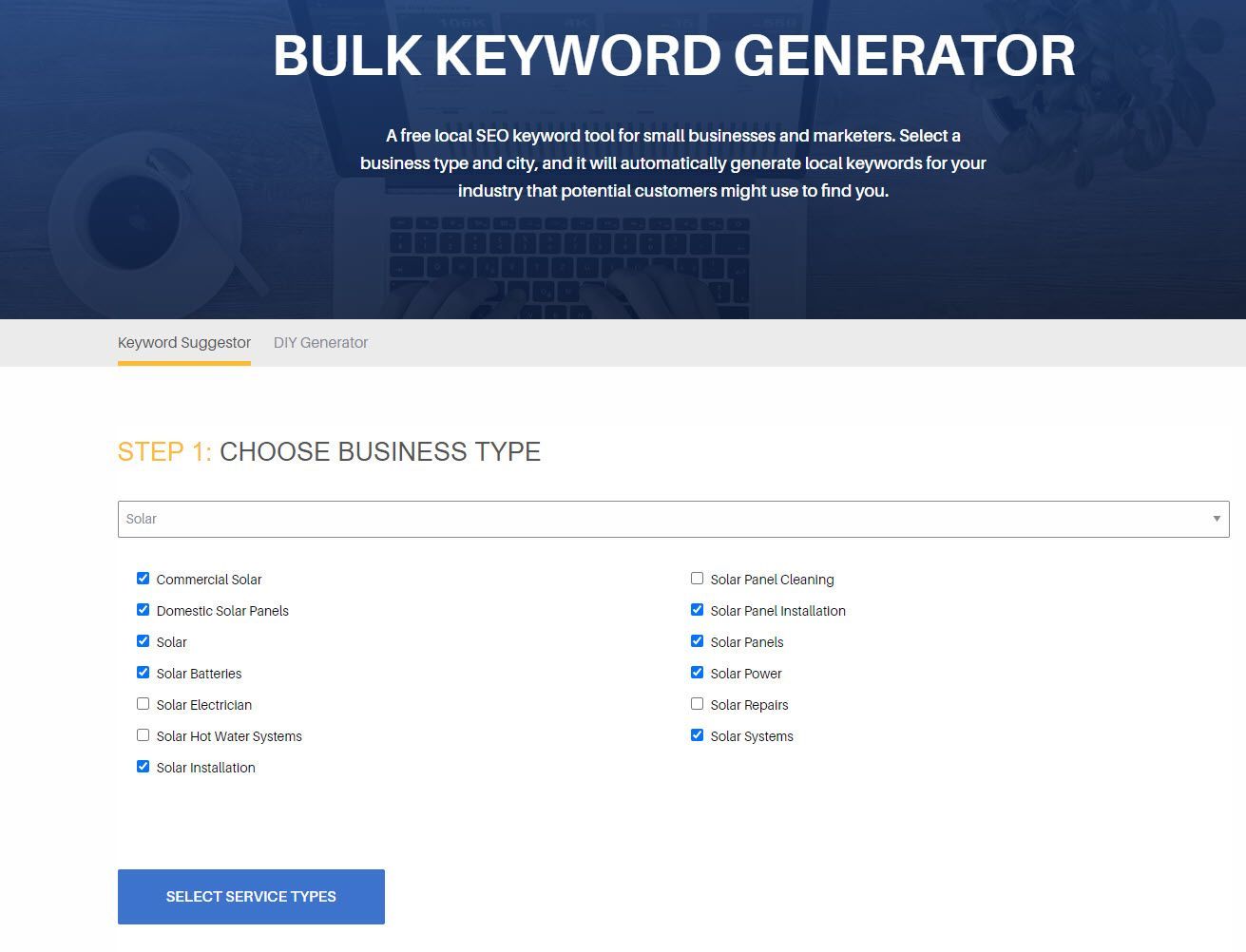
Ubersuggest (shows only 20 keywords for free version)
Ubersuggest is a super powerful SEO tool owned by Neil Patel that will let you see the keywords' monthly search volume, CPC & competitive analysis. This tool offers a very wide and decent database of keywords that is very much useful for your site. It gives keyword ideas and suggestions that are very reliable and it will help you identify which ones will work for your site.
Traffic Overview in Ubersuggest shows the following metrics:
- Organic monthly traffic: This is the estimated number of visitors the website receives from search engines every month.
- Organic monthly keywords: This is the number of keywords the website ranks for in the top 100 search results on Google.
- Traffic value: This is an estimate of how much the organic traffic to the website is worth, based on the cost of running paid ads for the same keywords.
- Top pages: This section lists the pages on the website that receive the most organic search traffic.
- Top SEO pages: This section lists the pages on the website that have the highest search engine optimization (SEO) scores, based on factors such as keyword usage, backlinks, and page speed.
Traffic Overview
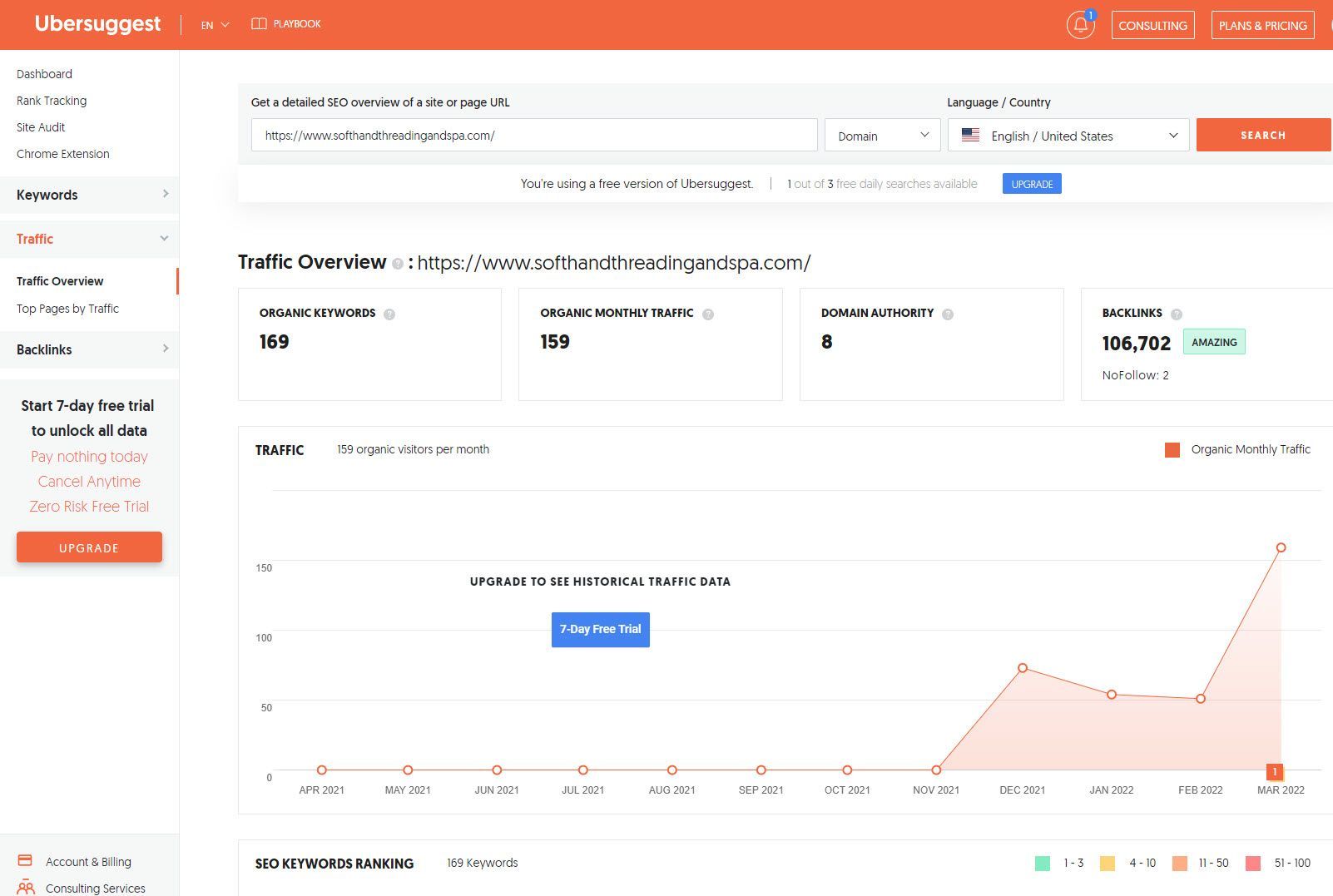
Keywords
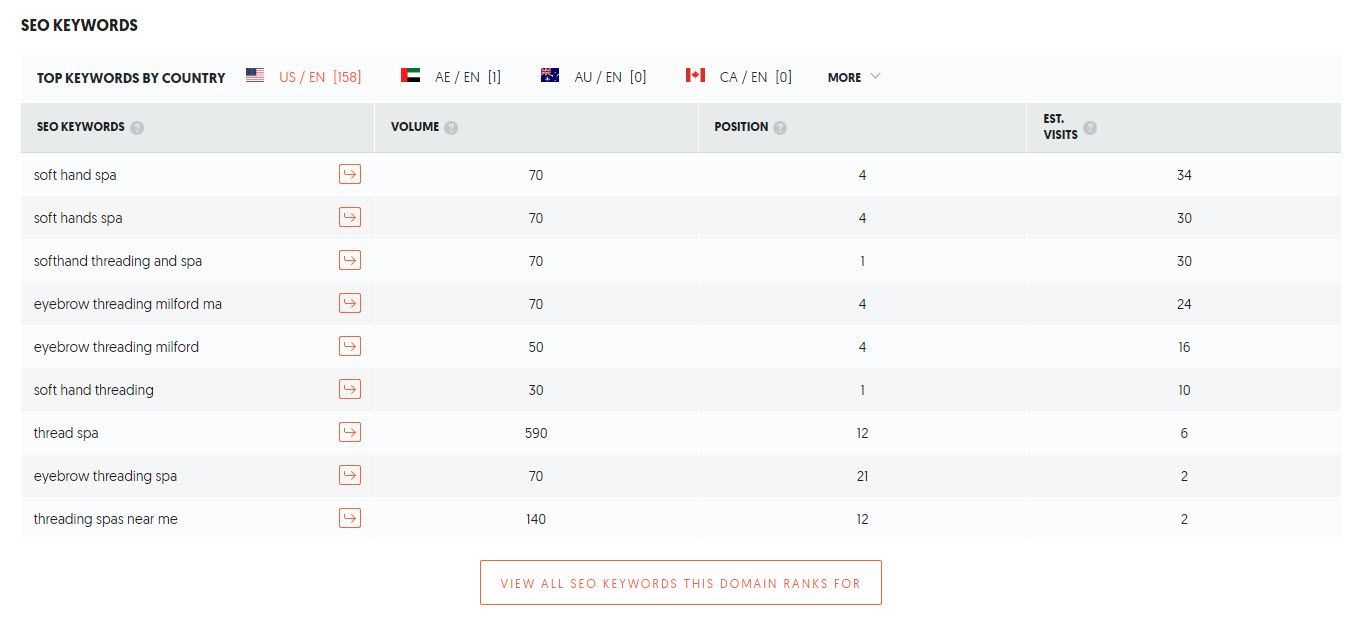
Backlinks
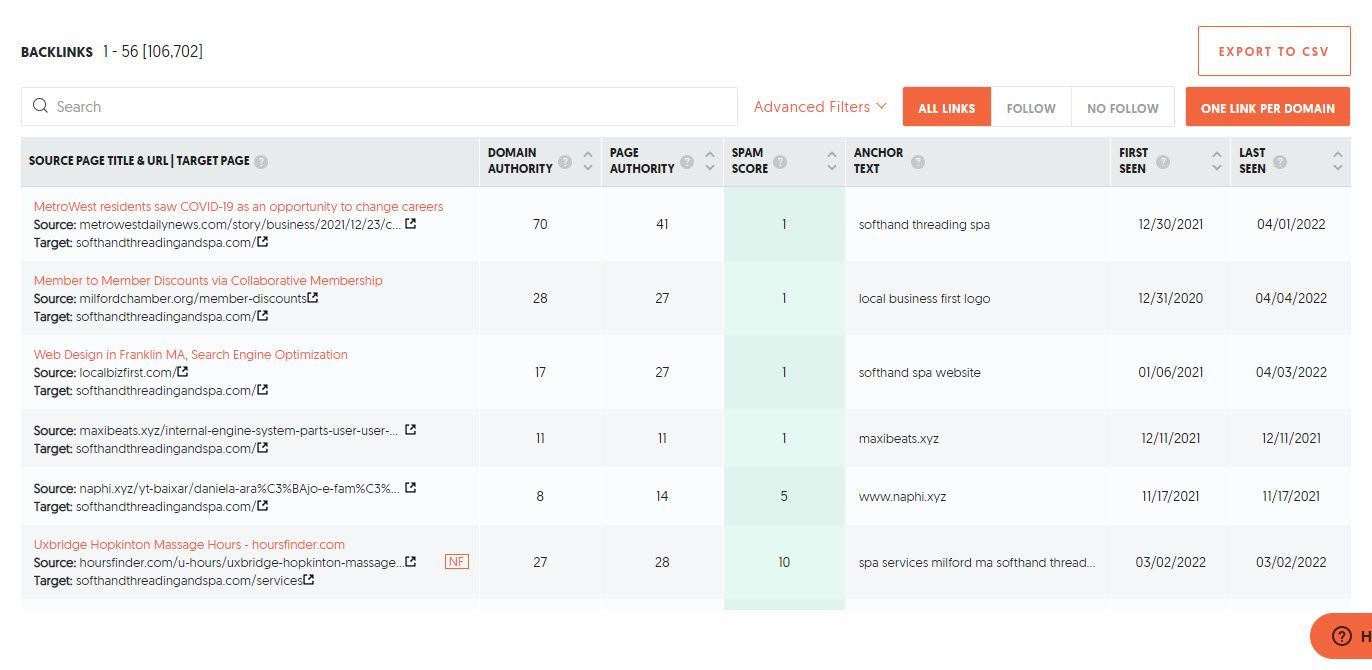
Top Pages

SEOptimer
SEOoptimer is another online tool that provides a comprehensive analysis of a website's search engine optimization (SEO) performance. It evaluates on-page factors such as content quality, keyword usage, and meta tags, as well as off-page factors such as backlinks, social media presence, and domain authority.
Some important features include:
- Website analysis: This feature analyzes various on-page and off-page factors of a website to identify areas for improvement.
- Keyword analysis: This feature analyzes a website's use of keywords and provides suggestions for optimizing them for search engines.
- Competitor analysis: This feature compares a website's SEO performance to that of its competitors, highlighting areas where the website can improve its ranking.
- Backlink analysis: This feature analyzes a website's backlinks and provides suggestions for improving its link profile.
- Social media analysis: This feature analyzes a website's social media presence and provides suggestions for improving its social media strategy.
WordStream Free Keyword Tool
WordStream is an awesome alternative to Google's Keyword Planner. The tool gives you a list of relevant keywords related to what you have searched.
Also, it has a cool feature where it gives additional information like the estimated CPS and competition level for each search term and also gives ideal keyword results tailored to your industry and country. And more importantly, you can have the results emailed to you.
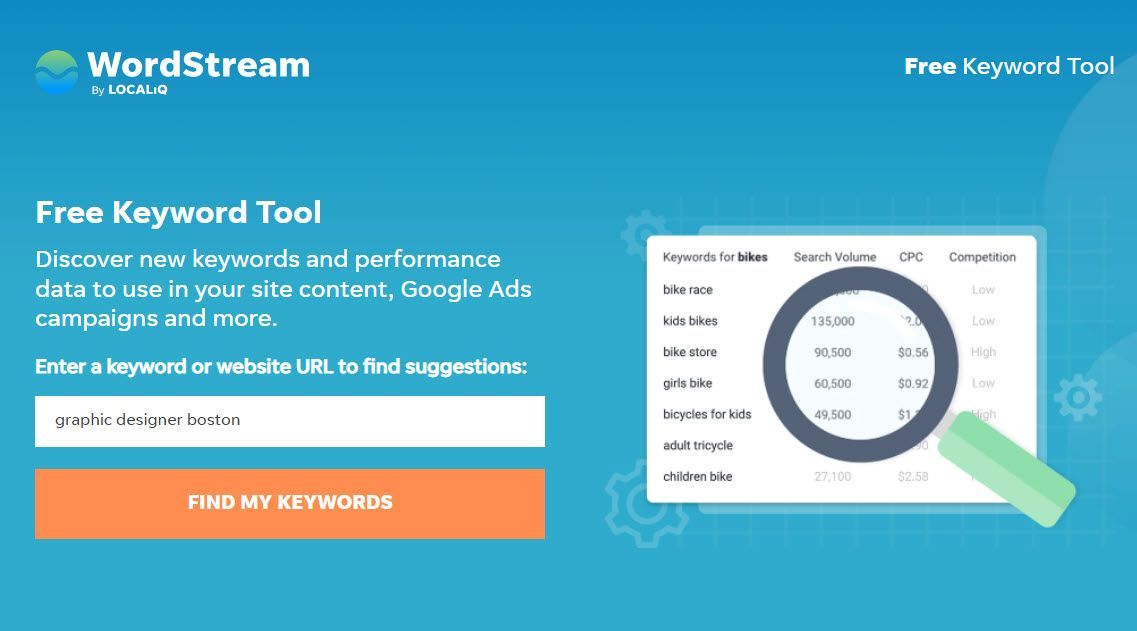
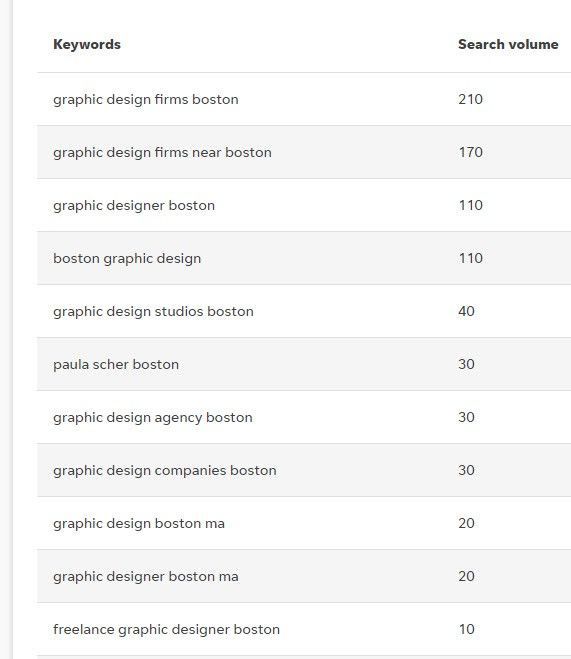
Bruce Clay Free Research Tool: KSP Keyword Research
KSP Keyword Research Tool is, no doubt, one of the best and most useful tools when it comes to doing a keyword search. It is very easy to navigate, you just need to input your keyword, just like the other free tools in our list.
Free Keyword Tool
Keyword Tool's keyword suggestions will be generated based on a Google domain and language that you inputted upon searching. It is one of the most widely used and best defined as an alternative to Google Keyword Planner.
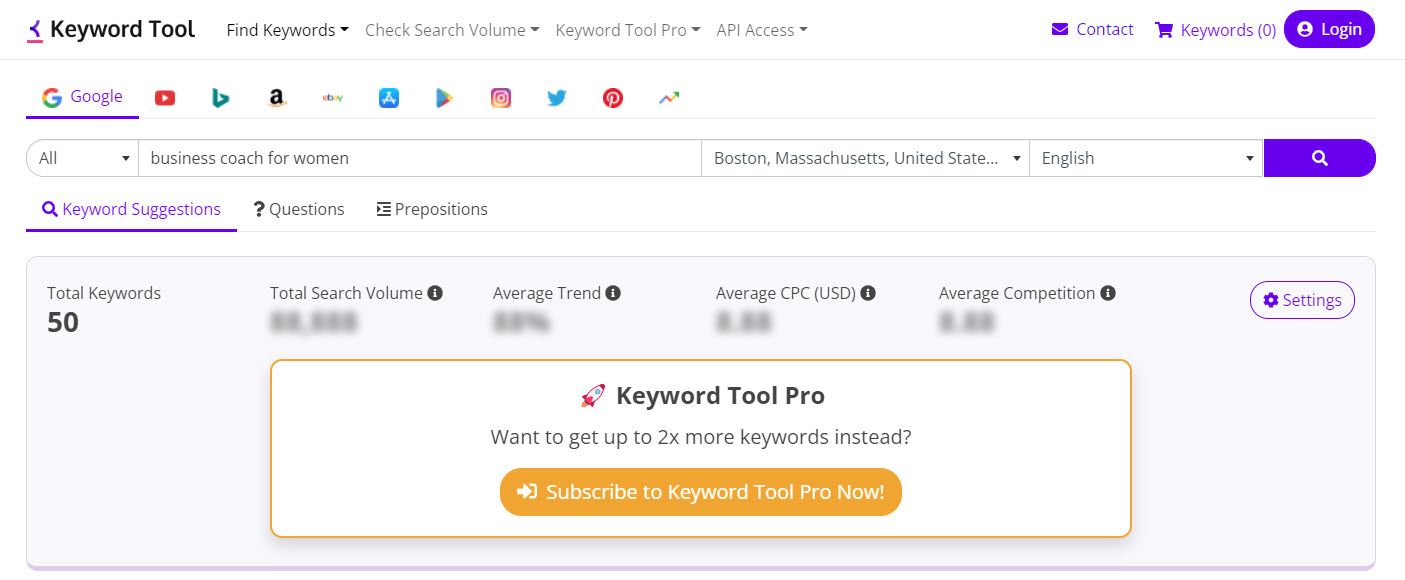
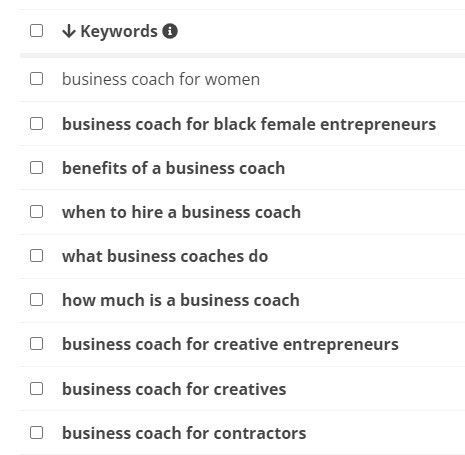
AnswerthePublic
From a quick search, Answer the Public produces useful phrases and questions people are asking about the keyword you want to use. This keyword generator will automatically generate instant, raw search insights, direct from how your customers think and search. And you will immediately see a very long list of long-tail key phrases to choose from.
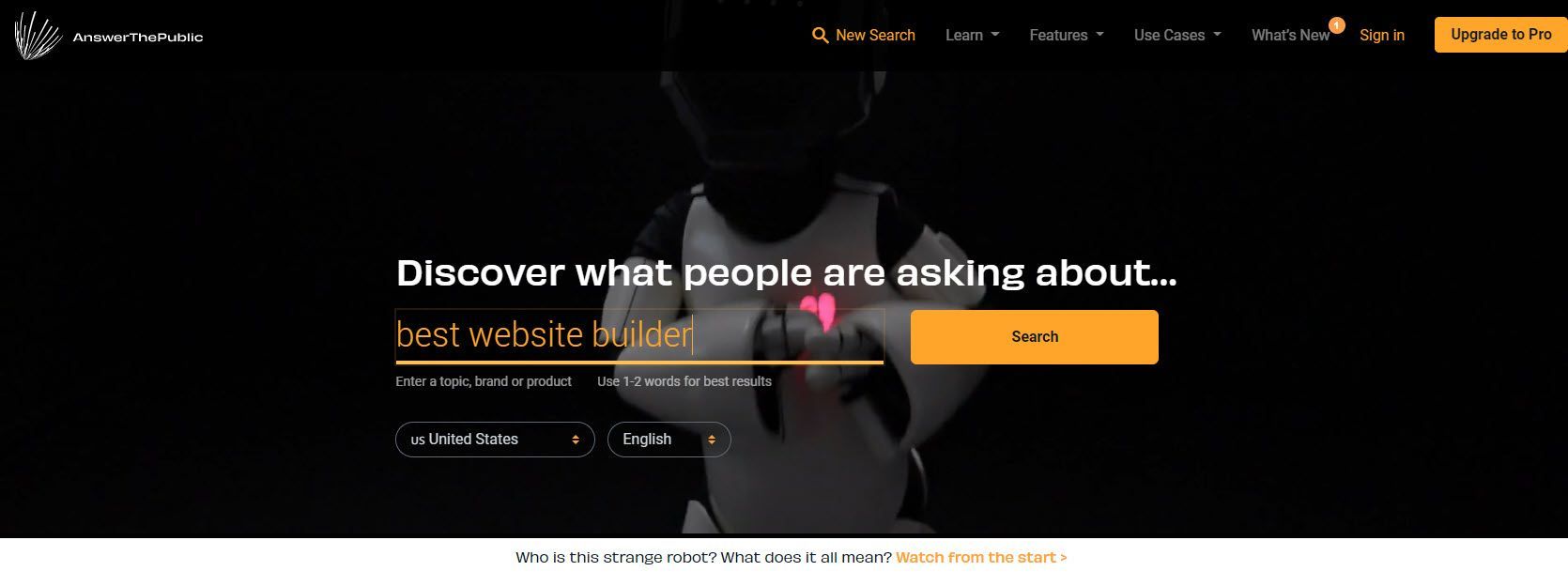
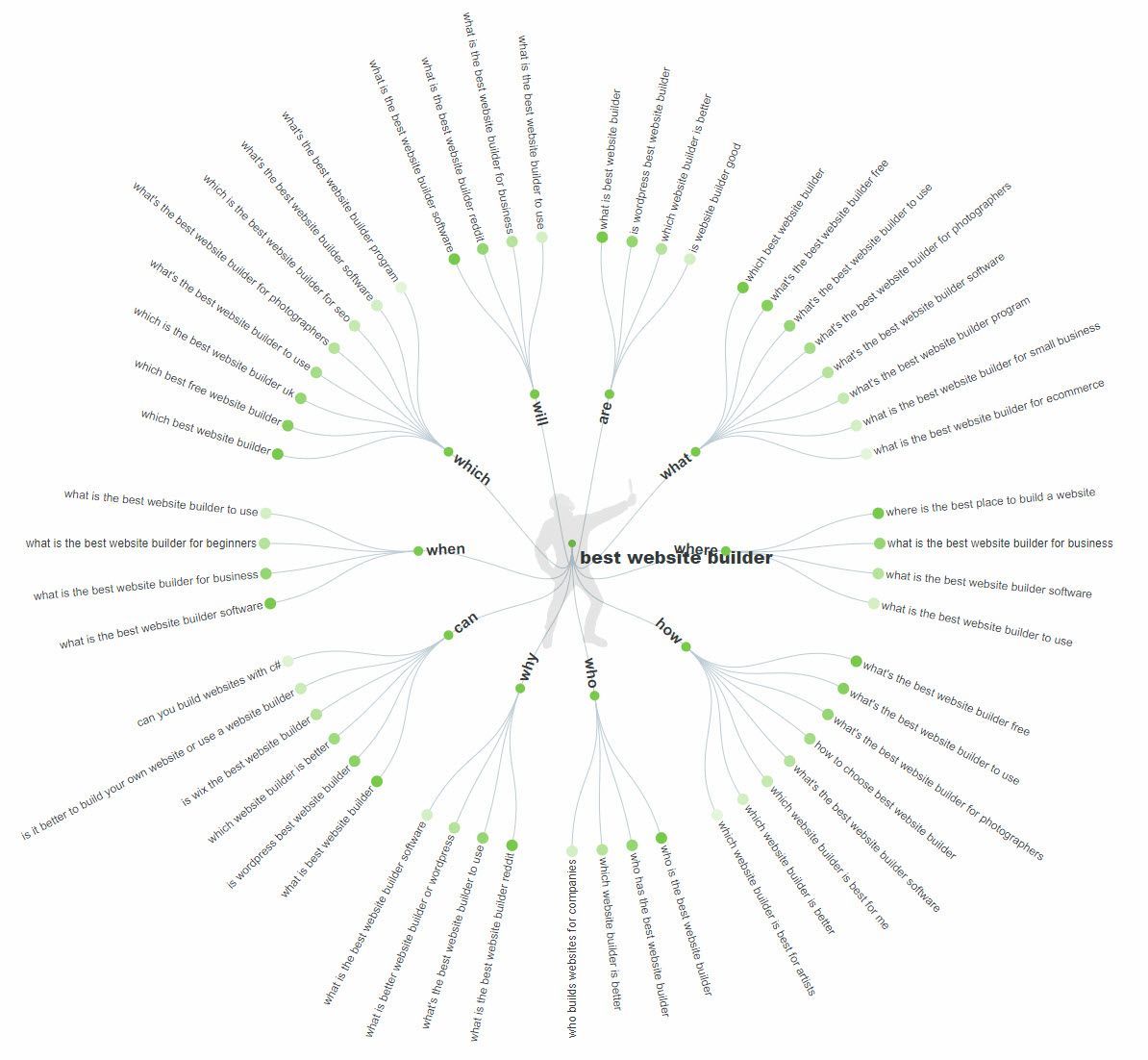
Google Trends
Google Trends is a helpful search trends tool that displays the frequency of a certain search phrase in relation to the overall volume of searches made on the website over a specified time period. It offers geographical statistics on search engine users as well as keyword-related data such as the search volume index.
You can type a search word into the tool's search box at the top to see how the volume of searches for that term has changed over time and in other places.
You can also just see what is currently trending throughout the world overall. For more precise information, alter the region, period of time, category or industry, and search engine.

